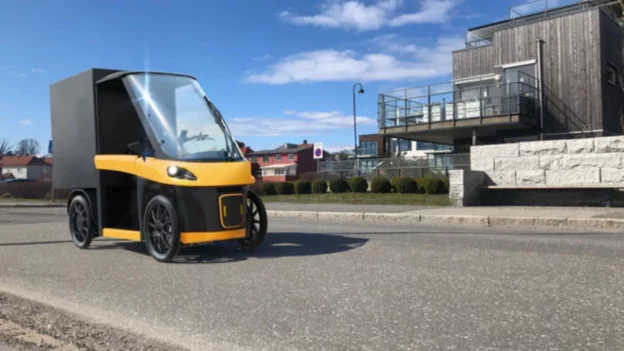The company CityQ, is stepping up production of its electric bicycle models with car-like features.
These innovative vehicles are available for sale in regions such as the United Kingdom, Germany, Benelux and Scandinavia, in both cargo and passenger versions. CityQ’s initiative is aligned with the objectives of European cities seeking more sustainable and environmentally friendly mobility options.
More affordable and environmentally friendly transportation
CityQ CEO Morten Rynning details the uniqueness of these four-wheeled electric bicycles because they offer multiple seating and cargo capacity while ensuring protection from the weather. Despite their appearance similar to a small car, these electric bicycles are lighter, more agile and environmentally friendly than traditional electric vehicles.
The adoption of these bicycles contributes to the reduction of pollution and traffic, while promoting safe and accessible mobility for citizens, without the need for a driver’s license, insurance or vehicle registration. In addition, these vehicles can be conveniently charged at home, avoiding dependence on public charging stations, offering superior stability and storage capacity than a conventional bicycle.
What are the features of CityQ’s electric bicycle models?
Weighing just 120 kg, these bikes are positioned as the lightest car-like vehicles on the market, generating a tiny fraction of the carbon emissions compared to electric vehicles and requiring no expensive charging infrastructure.
On the other hand, CityQ’s electric bicycles represent an environmental solution, being approximately 90% more environmentally friendly than internal combustion engine vehicles and 80% more environmentally friendly than conventional electric vehicles.
These electric bicycles, with a range of 110 km thanks to two interchangeable batteries, are designed to cope with inclines of 20% with a load of up to 250 kg, reaching a maximum speed of 25 km/h, in compliance with current regulations.

La bicicleta eléctrica del futuro. Fuente: CityQ
Europe is facing strong pollution and traffic challenges, and with a charging infrastructure for electric vehicles infrastructure for electric vehicles still under development, demand for CityQ’s electric bicycles serve as an introduction to the market as a sustainable option. CityQ CEO Morten Rynning emphasizes that “it is not necessary to wait for autonomous vehicles or drones to mitigate traffic and pollution, but that the solution can be as simple as adopting smaller electric vehicle innovations.”
Solutions and ideas to improve European air quality
Concerns about air quality in European cities are real. With 40% of residents exposed to harmful levels of pollution due mainly to road transport. Congestion costs in Europe are also a growing problem, with estimates pointing to a potential increase to 200 billion euros by 2050. In this scenario, experts project that light and compact electric vehicles, such as those from CityQ, could be key to the transformation of urban mobility.
CityQ has secured initial financing in excess of 3 million euros for the development and expansion of its production capacity. Models intended for cargo transport will be launched in spring 2024 and passenger versions will be available around autumn, with pre-orders already underway.
Don’t miss any of our posts and follow us on social media!
Inspenet.com YouTube LinkedIn Facebook Instagram
Source and photo: CityQ

